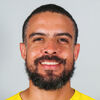Bernardo’s blog: An archery expat
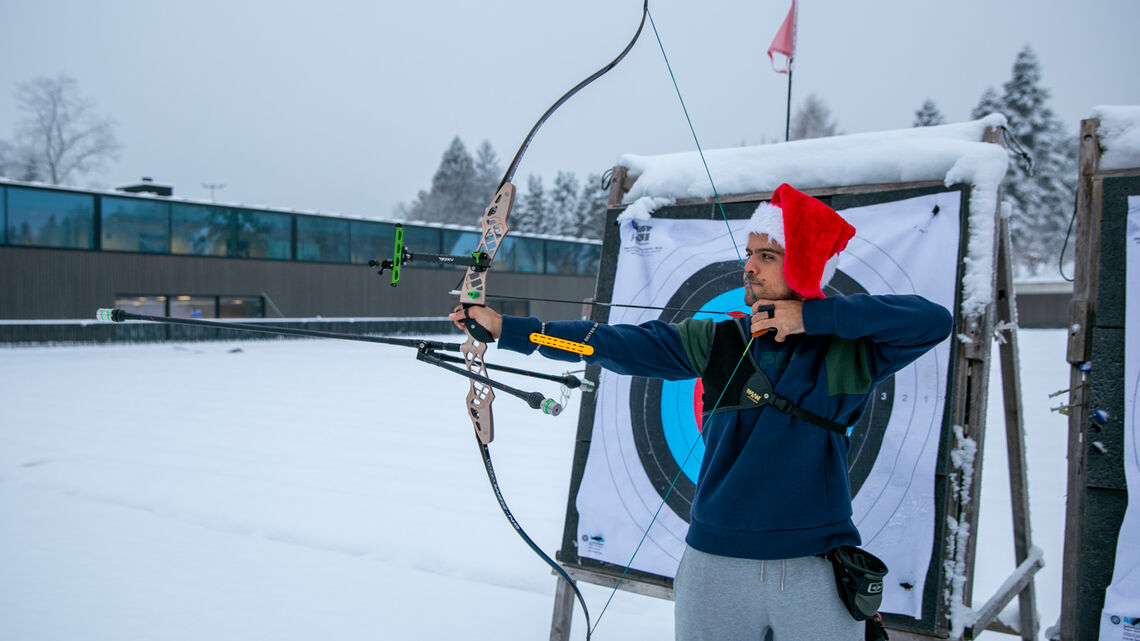
This blog is written by Bernardo Oliveira, giving an insight into his life as an elite archer training towards the Paris 2024 Olympic Games at the World Archery Excellence Centre.
After not making it to the Tokyo 2020 Olympic Games, I started thinking about relocating outside of Brazil. I felt I had hit a ceiling, and that I needed more to improve as an archer and stand a better chance of making it to Paris in 2024.
Besides, I’ve always had the dream of living abroad.
I have spent a total of six months in Korea, and that was awesome. But I wanted to actually live outside of Brazil for years to know what the experience would be like.
The thing that really persuaded me is the fact that many successful Brazilian athletes – in other sports – live and train abroad.
Table tennis player Hugo Calderano, who’s in the top 10 of the world rankings, is in Germany. One of the three gold medals won by Brazil at Beijing 2008 was by Cesar Cielo, who trained in the USA.
He wasn’t alone – there are many top Brazilian swimmers in the States.
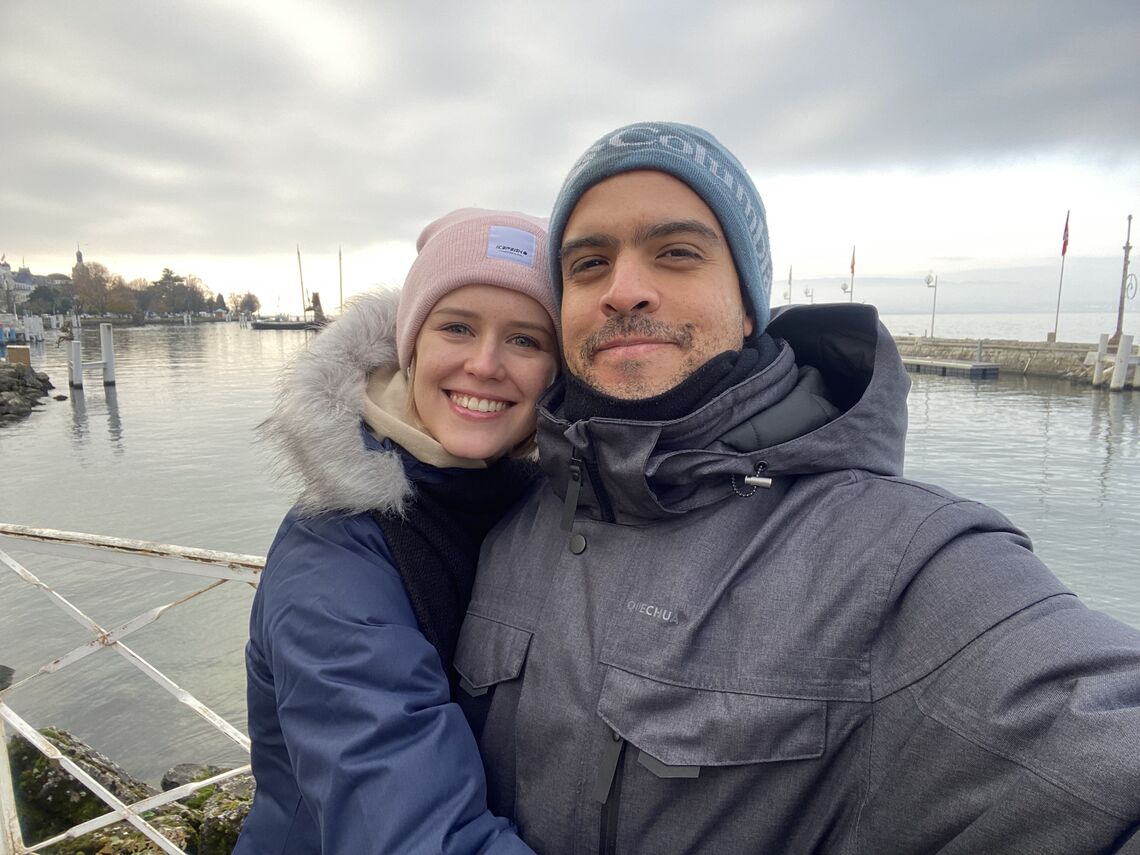
For me, in archery, I really wanted to compete more often and improve technically.
Korea wasn’t really an option. While there is coaching, access to competitions is difficult as they are mostly for archers within the professional team structure. So the two locations that came to mind were the USA and Europe.
Last November, I travelled to Lausanne to check out the World Archery Excellence Centre. I fell in love with the place.
And being in the heart of Europe would allow me to easily reach major competitions.
But to live in Europe, I needed a visa. Would an Olympic Solidarity programme be an option? Unfortunately not. Those scholarships are only for athletes from countries with 50 or fewer athletes at the last edition of the Games. Not Brazil’s case.
I’d have to figure something out.
I thought of enrolling on a language course or applying to a university. But then I’d have to split my time and focus away from archery – and spend money on studying.
Finally, I found an alternative way. A crazy way.
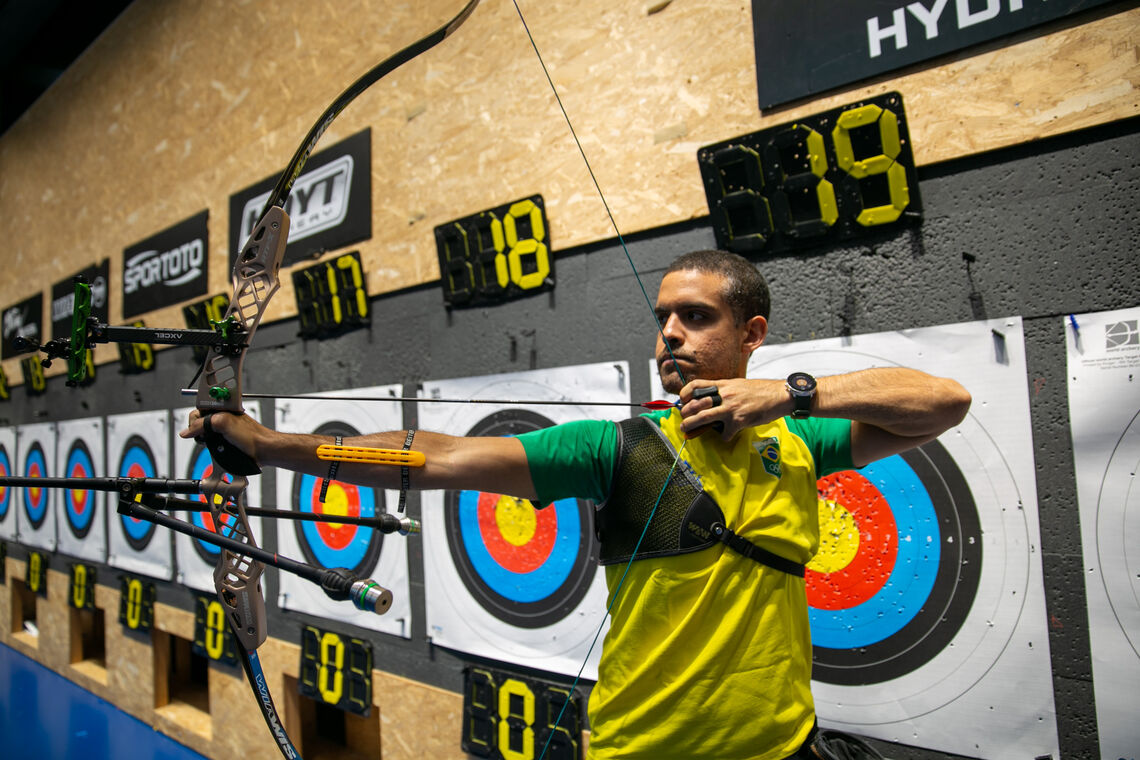
I felt like I was lost in the woods – but, through the trunks, saw a narrow hidden path between the trees.
Perhaps not the best track to follow but possibly the only option.
In France, there’s a visa called a ‘talent passport’ for people with international or national renown, and sport was one of the categories. I could apply for it and live in Evian – yes, where the water comes from – on the other side of Lac Leman (or Lake Geneva) to Lausanne and commute by boat every day.
It’s not short – one way, about 1h40. Would I be okay doing this every single day… for, say, six months? A year?
There was only one way to find out.
After months of preparation, I applied for the visa.
I was so anxious while waiting for the result – but thankfully it came through. It was my wife’s idea for me to go on my own at first, to see whether it was what I was looking for.
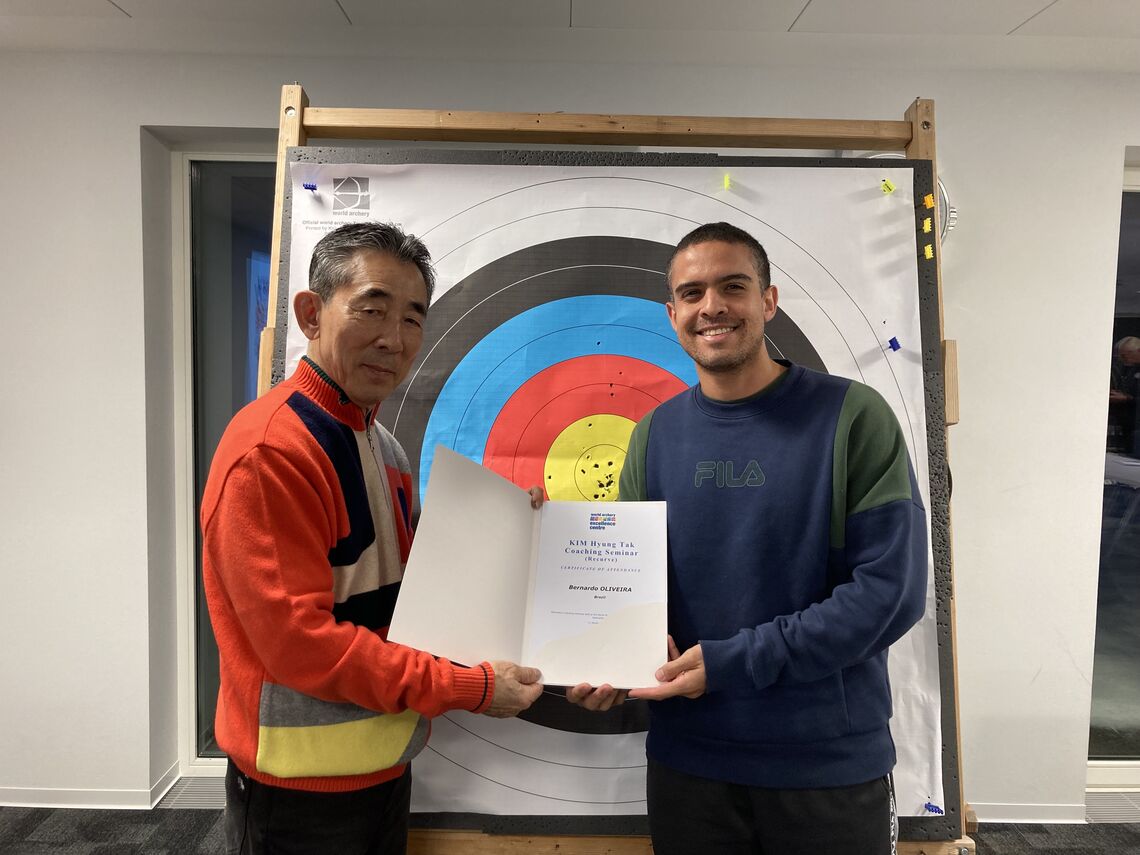
It was. More than I expected.
After two months at the World Archery Excellence Centre in Lausanne, I went back home to participate in the Brazilian outdoor nationals in mid-November, and give a seminar. With that done, my wife and I emptied our apartment, sold our car and boarded the plane to Europe with our most important belongings and our two cats.
I wasn’t and still am not homesick at all.
I’m training.
And how am I paying for all of this? My savings.
Ever since I started making money with archery I’ve been saving for my retirement. But I’ve decided to tap into this money to fund this project towards Paris. It’s like the ‘all-in’ in poker. I don’t want a comfortable retirement at the expense of regretting not having tried everything that was within my reach to pursue my dream.
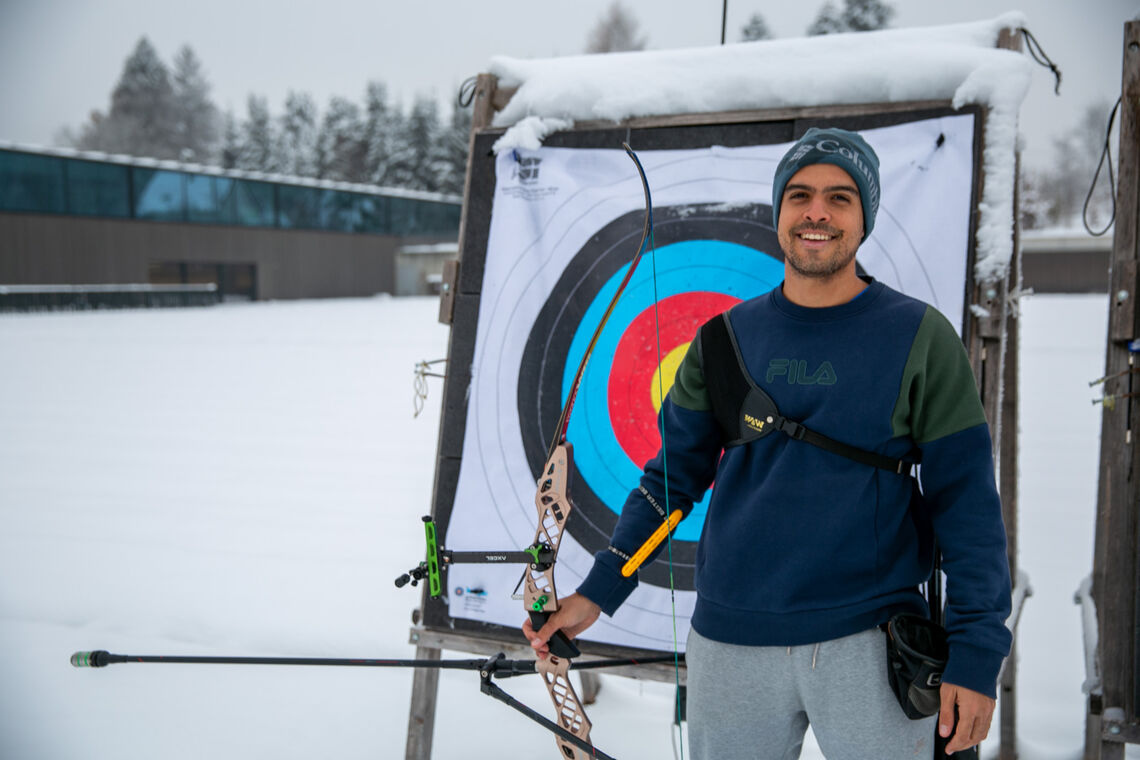
I’m really enjoying training at the World Archery Excellence Centre, and all the opportunities that I get there.
Last October, I got the level one coach certification and I’m looking forward to taking part in level two and three courses soon.
And then in December, Coach Kim Hyung Tak was in Lausanne for a seminar, and I also made sure to attend those. (Much easier than in February 2020, when I travelled 2000km to attend a very similar event with him in Tucuman, Argentina.)
I feel close to the centre of the archery world.
Being in Brazil, where every event is a long trip, I was far from many enriching experiences.
I’ve just shot the Sud de France Tournament in Nimes. It was my first time ever shooting a big indoor competition. My performance was a bit underwhelming.
To be honest, I’ve been struggling a bit lately. I believe, in great part, due to all these live changes. Still, it was an amazing experience and I enjoyed every bit of it. I learned.
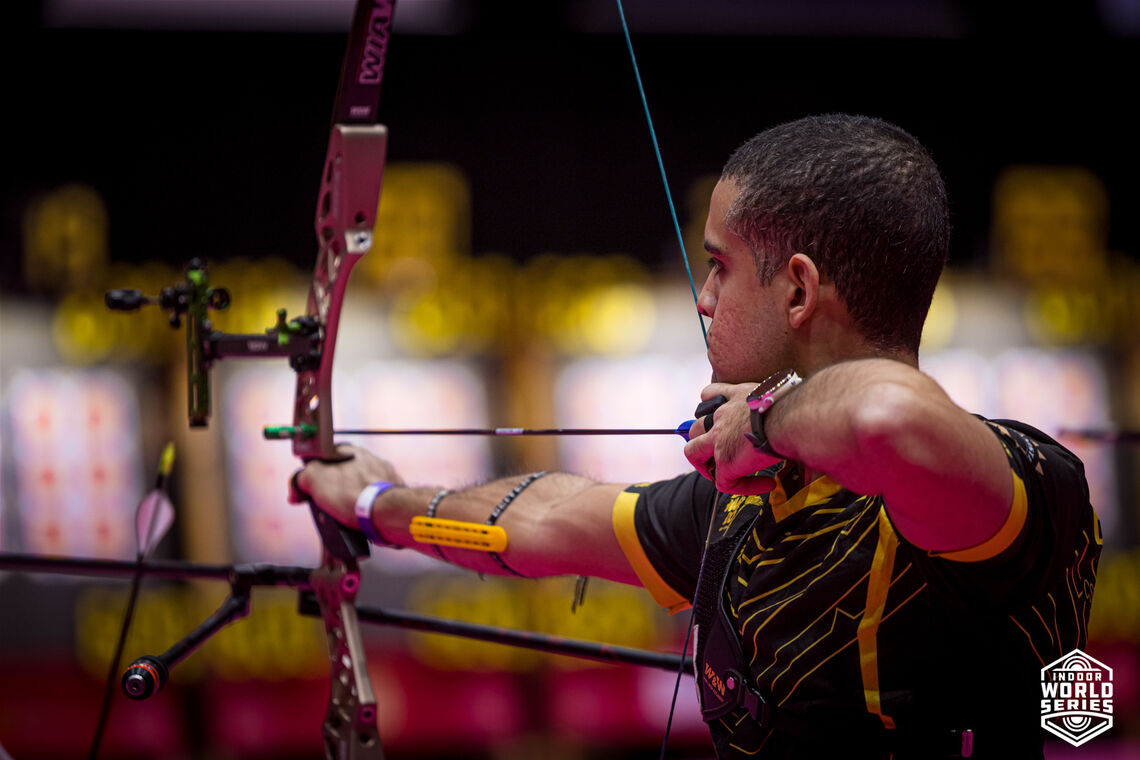
I don’t know if I’ll make the national team this year.
I’m back in Brazil now for team trials. These selections in February will choose the squad for the first and third stages of the Hyundai Archery World Cup. There’s another event in May to choose the team for the worlds in Berlin, the fourth stage of the World Cup and the Pan American Games in Santiago.
Let’s see if it’ll all work out.
I’m scared and, at the same time, excited.
I guess that’s a good mix.
I’ve been reading Steven Pressfield’s book The War of Art. The author says that fear can act as our compass, pointing us in which direction to go. “Fear is good,” he says. “Like self-doubt, fear is an indicator. Fear tells us what we have to do.”
I’m following my compass.
Wish me luck.
Images courtesy Bernardo Oliveira and Kim Jiwon.
